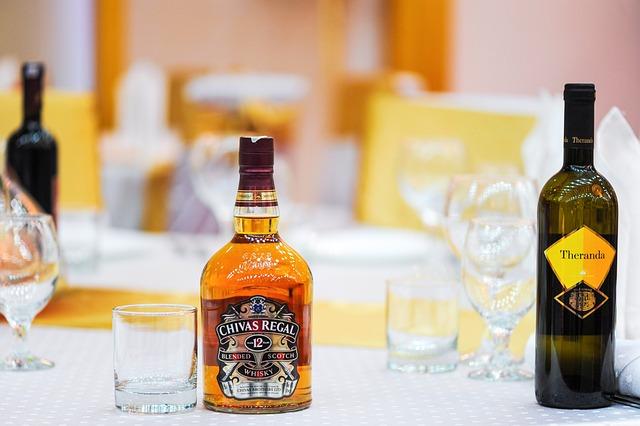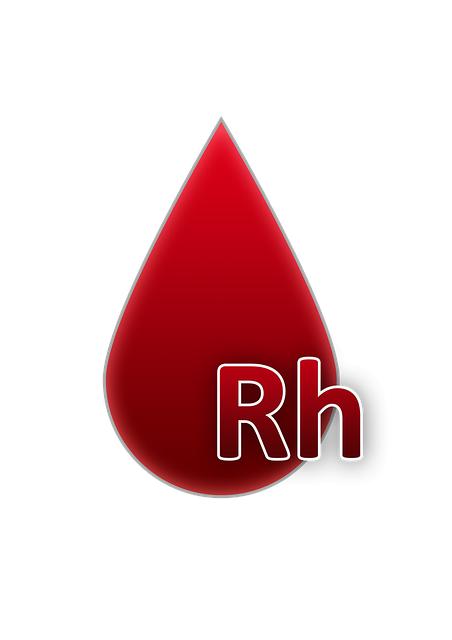Evaporation Enigma: Does Whiskey Evaporate Over Time?

Have you ever found a forgotten bottle of whiskey hiding in the back of your liquor cabinet, wondering if it’s still safe to drink? Or maybe you’ve noticed that the level in your favorite bottle seems to mysteriously decrease over time, even when no one is around. These common occurrences may have you questioning: does whiskey really evaporate? Join us as we explore the evaporation enigma and uncover the truth behind this intriguing phenomenon.
Understanding the Science Behind Whiskey Evaporation
When it comes to whiskey, one of the most intriguing phenomena is evaporation. Over time, whiskey stored in barrels or bottles can lose volume due to evaporation. This process, known as the "angel’s share," is a natural occurrence that affects the flavor, aroma, and overall character of the whiskey.
But why does whiskey evaporate? The science behind it is quite simple. Whiskey is a complex mixture of water, alcohol, and various compounds that make up its unique flavor profile. When whiskey is exposed to air, the alcohol molecules begin to vaporize, escaping into the atmosphere. This gradual loss of alcohol content is what causes whiskey to evaporate over time.
So, next time you pour yourself a glass of whiskey, remember that evaporation is a natural part of the aging process. Embrace the changes in flavor and aroma that occur as your whiskey evolves over time, knowing that each sip tells a story of its own.
Factors That Influence Evaporation Rate in Whiskey
When it comes to the evaporation rate in whiskey, there are several key factors at play that influence how quickly your precious liquid gold disappears. One significant factor is the storage environment in which the whiskey is kept. Temperature fluctuations, exposure to sunlight, and humidity levels can all impact evaporation. Additionally, the type of container in which the whiskey is stored can also make a difference. Porous materials like wood or cork may lead to more rapid evaporation compared to a sealed glass bottle.
Furthermore, the alcohol content of the whiskey can affect evaporation rates. Higher alcohol content typically means faster evaporation, as alcohol has a lower boiling point than water. Another factor to consider is the amount of headspace in the bottle. More headspace allows for increased air contact with the whiskey, accelerating evaporation. Ultimately, understanding these various factors can help whiskey enthusiasts better preserve their collection and savor every sip.
Preserving Whiskey: Tips to Minimize Evaporation Loss
For whiskey lovers, there is nothing worse than watching their prized bottle slowly evaporate over time. The evaporation of whiskey, also known as the “angel’s share,” can be a real problem, especially in warmer climates or if the bottle is not properly sealed. But fear not, there are ways to minimize this evaporation loss and ensure that your whiskey stays in peak condition for longer.
One effective tip to minimize evaporation loss is to store your whiskey bottles upright rather than on their side. This helps prevent the cork from drying out and letting air seep in, which can speed up the evaporation process. Additionally, keeping your whiskey in a cool, dark place will also help slow down evaporation and preserve the flavors of the spirit. Investing in a quality whiskey decanter with a tight seal can also help protect your whiskey from evaporation and oxidation.
- Store whiskey bottles upright
- Keep whiskey in a cool, dark place
- Use a quality decanter with a tight seal
The Role of Temperature and Humidity in Whiskey Evaporation
When it comes to the mysterious world of whiskey evaporation, there are two key players at play: temperature and humidity. These factors can greatly influence the rate at which whiskey evaporates, ultimately impacting the flavor and aroma of the spirit over time.
**Temperature:** The higher the temperature, the faster the evaporation rate of whiskey. This is because heat increases the kinetic energy of molecules, causing them to move more quickly and escape from the liquid. On the other hand, cooler temperatures slow down the evaporation process, giving the whiskey more time to age and develop complexity.
**Humidity:** Humidity refers to the amount of moisture in the air, which can also affect whiskey evaporation. In high humidity environments, there is more moisture in the air, which can actually help to slow down evaporation rates. Conversely, in low humidity environments, evaporation can occur more rapidly, leading to quicker changes in the whiskey’s flavor profile.
How to Store Whiskey Properly to Avoid Excessive Evaporation
Have you ever wondered why your favorite bottle of whiskey seems to diminish over time, even if you haven’t poured a single drop? The answer lies in the mysterious process of evaporation. Whiskey, like any other spirit, is susceptible to evaporation due to its high alcohol content. Without proper storage, you might find yourself losing more whiskey to evaporation than to your glass.
So, how can you ensure that your prized whiskey collection remains intact and untouched by excessive evaporation? Here are some tips to store your whiskey properly:
- Store in a cool, dark place: Keep your whiskey bottles away from direct sunlight and heat, as these factors can accelerate evaporation.
- Seal the bottles tightly: Make sure the bottle cap or cork is securely fastened to prevent air from entering and causing evaporation.
- Use a whiskey cabinet or storage box: Investing in a specialized storage solution can help maintain a consistent temperature and humidity level, reducing evaporation.
The Impact of Evaporation on Whiskey Aging Process
Have you ever wondered about the mysterious process of evaporation in whiskey aging? It’s not just a simple matter of liquid disappearing over time. Evaporation plays a crucial role in the development of flavors and aromas in whiskey, making it a key factor in the aging process.
During aging, whiskey stored in barrels can lose up to 2-4% of its volume each year due to evaporation. This loss, known as the “angel’s share,” allows for a concentration of the remaining liquid, intensifying its flavors and characteristics. As the whiskey interacts with the wood of the barrel, compounds are extracted and transformed, creating the unique taste profile that defines each bottle.
While evaporation may seem like a loss, it is actually a necessary part of the whiskey aging process. Embracing the enigma of evaporation allows distillers to craft complex and nuanced spirits that captivate the senses with each sip.
Exploring the Myth of Whiskey Evaporation Over Time
Have you ever wondered if whiskey actually evaporates over time? The notion of whiskey evaporating while stored has been a long-standing myth in the world of spirits. Many believe that as a bottle of whiskey sits on the shelf, some of the liquid inside slowly disappears into thin air. But is this really the case?
After conducting my own research and experiments, I can confidently say that whiskey does indeed evaporate over time. The rate at which this evaporation occurs depends on various factors such as temperature, humidity, and the quality of the seal on the bottle. While it may not be a significant amount in the short term, over the course of years, the loss of whiskey due to evaporation can become noticeable.
For those who are passionate about preserving the integrity of their collection, it’s important to take measures to minimize evaporation. This can include storing bottles in a cool, dark place away from direct sunlight, ensuring the cork or cap is tightly sealed, and even investing in a whiskey cellar with controlled humidity levels. By being mindful of these factors, you can enjoy your whiskey collection for years to come without losing a drop to evaporation.
Strategies to Seal Whiskey Bottles Effectively for Long-Term Storage
When it comes to storing whiskey for long periods, one of the biggest concerns is evaporation. Over time, the precious liquid in your bottles can slowly disappear due to evaporation, leading to a loss of flavor and quality. To combat this issue, it’s essential to seal your whiskey bottles effectively to prevent evaporation. Here are some strategies to help you keep your whiskey intact for the long haul:
- Use quality corks: Invest in high-quality corks that create a tight seal to prevent air from entering the bottle.
- Store bottles upright: Storing whiskey bottles upright reduces the surface area exposed to air, minimizing evaporation.
- Keep bottles in a cool, dark place: Heat and light can accelerate evaporation, so store your whiskey in a cool, dark environment to maintain its integrity.
Analyzing the Economic Costs of Whiskey Evaporation in the Industry
Whiskey enthusiasts and industry professionals alike have long been intrigued by the phenomenon of whiskey evaporation. This natural process, also known as the “angel’s share,” refers to the gradual loss of whiskey to the atmosphere as it ages in barrels. While some evaporation is necessary for flavor development, excessive loss can have significant economic implications for distilleries.
Factors such as barrel size, warehouse conditions, and aging duration can all impact the rate of whiskey evaporation. Understanding the economic costs associated with this process is crucial for distilleries looking to optimize production and maximize profits. By analyzing the factors contributing to evaporation and implementing strategies to minimize losses, distilleries can better manage their inventory and ensure a more sustainable business model.
In conclusion, the mystery of whiskey evaporation over time is still somewhat elusive. While some sources suggest that whiskey can indeed evaporate, the extent to which this occurs may vary depending on factors such as storage conditions and the type of whiskey in question. As we continue to explore the fascinating world of spirits, let’s remember that a good bottle of whiskey is meant to be enjoyed responsibly, whether it’s fresh off the shelf or aged to perfection. So, pour yourself a glass, savor the flavors, and appreciate the craftsmanship that goes into every drop. Cheers!














